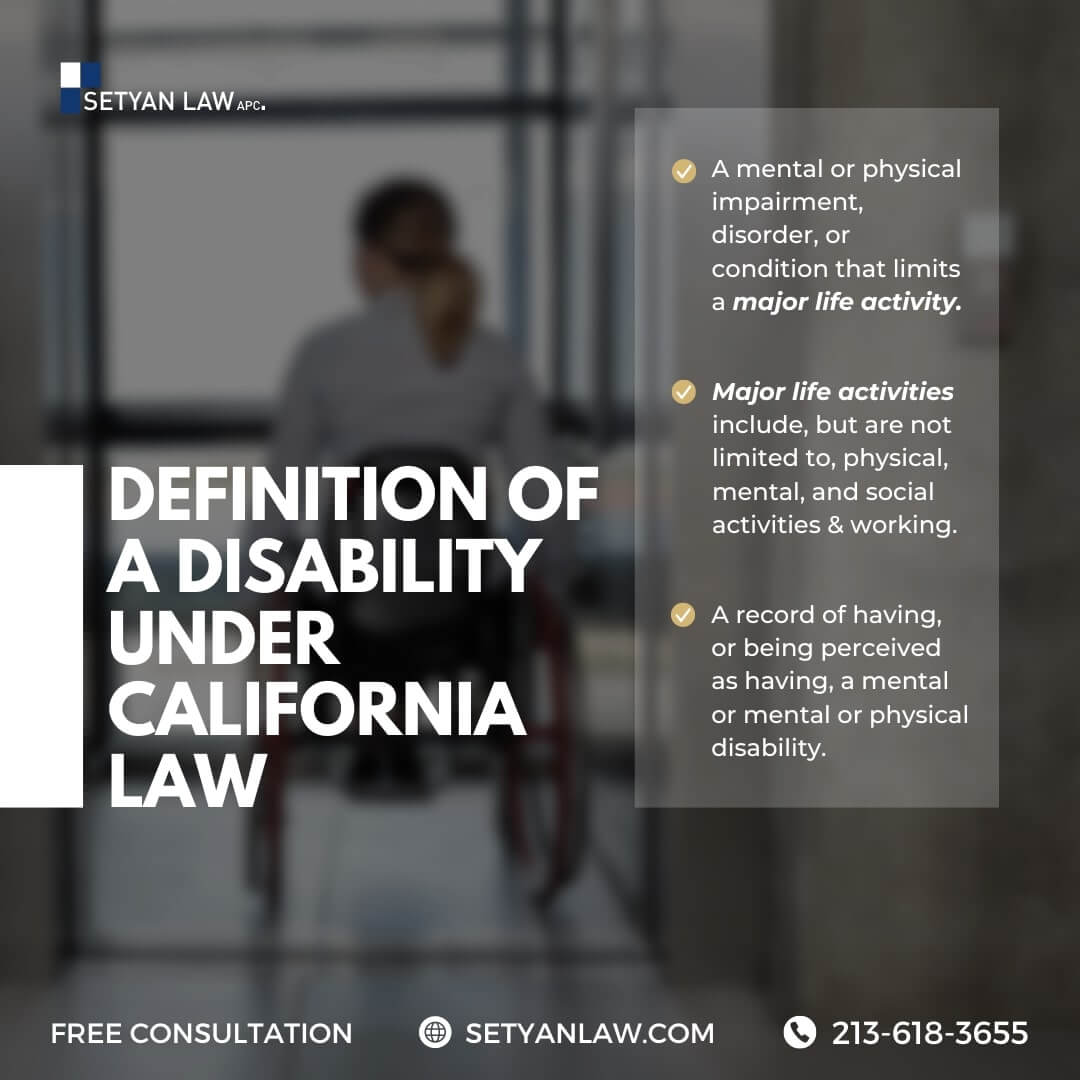Updated October 1, 2025
Medical Discrimination at Work
Medical discrimination impacts thousands of workers each year, creating challenging and often devastating consequences for those simply trying to manage their health while maintaining their livelihoods. Unfortunately, many employees don't recognize when their rights are being violated or what protections exist under the law.
Despite comprehensive legal safeguards, workplace discrimination based on medical conditions continues to affect employees across various industries. From being denied reasonable accommodations to facing termination after disclosing a diagnosis, these violations often leave workers feeling vulnerable and unsure where to turn.
This guide examines what constitutes medical discrimination, which laws protect you, and specifically what actions your employer cannot legally take regarding your medical condition. Furthermore, we'll explore which medical conditions qualify for protection and outline concrete steps you can take if you believe you've experienced discrimination.
Understanding your rights is the first step toward protecting your career and your health. Whether you're currently facing discrimination or want to prepare yourself with knowledge, this comprehensive 2025 guide will provide the information you need to navigate these complex situations.
What is medical discrimination at work?
Workplace medical discrimination occurs when an employer treats an employee or job applicant unfavorably because of their existing, past, or perceived future medical conditions. This treatment can manifest in various aspects of employment, creating significant barriers for affected individuals.
Definition under federal and state law
Medical discrimination is prohibited by several federal and state laws. At the federal level, the Americans with Disabilities Act (ADA) protects employees against discrimination based on disabilities, which includes many medical conditions that substantially limit major life activities. This law applies to employers with 15 or more employees. Additionally, the Family and Medical Leave Act (FMLA) prohibits discrimination against employees who request or take leave for medical conditions.
In California, medical condition discrimination falls under the Fair Employment and Housing Act (FEHA), which offers broader protections than federal law. FEHA defines a medical condition as "any health impairment related to cancer or a record of having cancer or genetic characteristics that are determined to be associated with an increased risk of developing a disorder or disease." Notably, FEHA applies to employers with just five or more employees, making its reach more extensive than federal protections.
How it differs from general disability discrimination
Medical condition discrimination and general disability discrimination overlap but have distinct differences. In essence, medical condition discrimination specifically relates to health impairments, whereas disability discrimination encompasses a wider range of physical and mental impairments.
Under federal law (ADA), a disability is defined as "a physical or mental impairment that substantially limits one or more major life activities." However, not all medical conditions qualify as disabilities. Some conditions might be temporary or not severe enough to meet the federal disability definition.
California law offers more comprehensive protection. Under FEHA, the definition of disability is broader and includes a more extensive range of physical and mental conditions. Unlike federal law, FEHA does not require that an impairment substantially limit a major life activity—it only needs to limit the ability to perform one.
Another key difference lies in the accommodation requirements. The ADA requires reasonable accommodations but doesn't specify a particular interactive process. In contrast, FEHA explicitly requires employers to engage in a timely, good-faith interactive process with employees to determine appropriate accommodations.
Examples of discriminatory behavior
Medical condition discrimination can take many forms in the workplace, including:
- Refusing to hire someone based on their medical condition
- Terminating or demoting an employee after they disclose a medical condition
- Denying reasonable accommodations that would allow an employee to perform essential job functions
- Paying an employee with a medical condition less than other similarly qualified colleagues
- Harassing an employee because of their medical condition
- Denying company health insurance based on an employee's medical history
- Refusing to allow medical necessities like medication administration during work hours
- Denying promotion opportunities due to a medical condition
- Retaliating against an employee for taking medical leave
- Disclosing private medical information to others in the workplace
An important aspect to remember is that employers cannot discriminate at any point in the employment process—from job advertisements and recruitment to training, promotions, and termination decisions.
Which laws protect you from medical discrimination?
Several federal and state laws work together to safeguard employees from medical discrimination. These protections create a comprehensive safety net designed to prevent unfair treatment based on health conditions. Let's examine the most significant laws that protect workers.
Americans with Disabilities Act (ADA)
The ADA stands as a cornerstone federal law prohibiting discrimination against qualified individuals with disabilities. Under this act, employers with 15 or more employees cannot discriminate in any aspect of employment, including hiring, promotions, pay, benefits, and terminations.
The ADA defines a disability as "a physical or mental impairment that substantially limits one or more major life activities." This includes many medical conditions, even if they're managed with medication. Essentially, the ADA requires employers to provide reasonable accommodations unless doing so would cause an "undue hardship."
The protection extends beyond those with current disabilities—it also covers individuals with a history of disability and those who are regarded as having a disability, even if they don't actually have one.
Family and Medical Leave Act (FMLA)
The FMLA provides eligible employees with up to 12 workweeks of unpaid, job-protected leave during any 12-month period for qualifying medical reasons. This includes serious health conditions that make employees unable to perform their job functions.
To qualify for FMLA protection, you must:
- Work for a covered employer (private employers with 50+ employees, public agencies, or schools)
- Have worked at least 12 months for the employer
- Have accumulated at least 1,250 hours of service during the previous 12 months
- Work at a location where the employer has at least 50 employees within 75 miles
Upon returning from FMLA leave, employees must be restored to the same or an equivalent position with identical pay, benefits, and employment conditions.
Genetic Information Nondiscrimination Act (GINA)
GINA prohibits employers from discriminating against employees based on genetic information. This includes information about an individual's genetic tests, family members' genetic tests, and family medical history.
Enacted in 2008, GINA makes it illegal for employers to use genetic information when making employment decisions. Additionally, it strictly limits employers from requesting, requiring, or purchasing genetic information about employees or their family members.
This protection is particularly valuable for individuals with genetic predispositions to certain diseases who may otherwise fear discrimination based on potential future medical conditions rather than current ones.
California Fair Employment and Housing Act (FEHA)
For California employees, FEHA offers broader protections than federal law. FEHA applies to employers with five or more employees and explicitly prohibits discrimination based on medical conditions.
The act specifically defines a medical condition as "any health impairment related to cancer or a record of having cancer" or "genetic characteristics associated with an increased risk of developing a disease or disorder." Consequently, California employees often have stronger legal protections against medical discrimination than those in many other states.
Other relevant state laws
Although federal laws provide a baseline of protection, many states have enacted their own laws that extend beyond federal requirements. For instance, some states lower the minimum employee threshold for coverage, thereby extending protections to workers at smaller companies.
State laws may also broaden the definition of protected medical conditions or mandate more comprehensive accommodation requirements. Therefore, checking your state's specific laws is crucial when assessing your rights regarding medical discrimination.
Overall, this network of laws creates multiple layers of protection against medical discrimination, although coverage varies based on employer size, location, and specific circumstances.
What your employer legally cannot do
Federal and state laws establish clear boundaries on what employers can and cannot do regarding employees' medical conditions. Understanding these limitations helps you recognize when your rights are being violated.
Denying reasonable accommodations
Under the ADA, employers must provide reasonable accommodations to qualified employees with disabilities unless doing so would cause "undue hardship." Reasonable accommodations include any changes to the workplace or job that enable an employee with a disability to perform essential job functions. Examples include modified schedules, equipment adjustments, or policy modifications.
An employer cannot simply reject accommodation requests without proper consideration. In fact, they must engage in an "interactive process" to identify potential solutions. Moreover, an employer cannot demand you accept an accommodation you don't want—though if you need one to perform essential job functions and refuse it, you might not be considered qualified for the position.
Firing or demoting due to a medical condition
Terminating or demoting an employee because of a medical condition constitutes discrimination. This protection applies to current conditions, past medical history, and perceived medical conditions.
Your employer cannot make adverse employment decisions—including hiring, firing, promotions, pay, job assignments, or any term of employment—based on your medical condition. In some instances, employers try to hide discriminatory intent by providing sham reasons for demotion, making documentation of your performance critical.
Disclosing private medical information
Employers must maintain confidentiality of employee medical information. Under ADA requirements, medical records must be kept separate from standard personnel files. Although supervisors may be informed about necessary work restrictions or accommodations, they cannot share your private health information with others who don't need to know.
Refusing leave under FMLA
For eligible employees, FMLA provides up to 12 weeks of unpaid, job-protected leave. Employers cannot interfere with or deny valid FMLA requests. Prohibited actions include discouraging use of FMLA leave, manipulating work hours to avoid FMLA responsibilities, or counting FMLA leave under "no fault" attendance policies.
Upon returning from leave, you must be restored to the same or equivalent position with identical pay, benefits, and working conditions.
Retaliating after a complaint
It is strictly illegal for employers to retaliate against employees who assert their rights regarding medical conditions. This includes filing discrimination complaints, requesting accommodations, taking protected leave, or participating in investigations.
Retaliation may take various forms—termination, demotion, reduced hours, schedule changes, or creating a hostile work environment. The timing between a protected activity and adverse action often serves as evidence of potential retaliation in legal proceedings.
What counts as a protected medical condition?
Understanding which medical conditions qualify for legal protection is crucial for employees facing health-related workplace challenges. The scope of protected conditions extends much further than many people realize.
Chronic illnesses (e.g., cancer, diabetes)
Chronic illnesses are among the most commonly protected medical conditions in the workplace. These include diabetes, multiple sclerosis, rheumatoid arthritis, Crohn's disease, lupus, Parkinson's disease, asthma, and cancer. The FMLA specifically protects employees with chronic conditions that require periodic visits to healthcare providers at least twice a year and include periods of incapacity that recur over extended periods. For instance, an employee might need FMLA leave for multiple sclerosis flare-ups or to attend outpatient treatments.
Mental health conditions
Mental health conditions receive substantial protection under workplace discrimination laws. According to the EEOC, mental health conditions like major depression, PTSD, bipolar disorder, schizophrenia, and obsessive-compulsive disorder easily qualify as disabilities. Anxiety and PTSD accounted for 60% of all mental disorder-based discrimination complaints filed with the EEOC in 2021, up from 35% in 2010 [1]. Mental health conditions need not be permanent or severe to qualify for protection—they must simply make activities more difficult compared to how most people perform them.
Genetic predispositions
Under the Genetic Information Nondiscrimination Act (GINA), employers cannot discriminate based on genetic information, including genetic tests, family medical history, or genetic predispositions to conditions like cancer, Alzheimer's, or heart disease. Family medical history falls under this protection since it's often used to determine disease risk. Given that, genetic information encompasses both an employee's own genetic tests alongside those of family members.
Temporary conditions with long-term impact
Not all protected conditions must be permanent. Temporary injuries or ailments with long-term impacts often qualify for protection. Examples include back injuries with lasting effects, broken bones that significantly limit mobility, or conditions associated with high-risk pregnancies. Furthermore, temporary conditions that recur regularly, such as severe migraines or panic attacks, may qualify even without permanent impact. Nonetheless, minor temporary conditions like common colds, non-chronic stomach issues, or minor sprains typically don't receive protection.
Perceived medical conditions
Remarkably, the law also protects employees against discrimination based on perceived medical conditions, regardless of whether the employee actually has the condition. Should an employer incorrectly assume an employee has a limiting condition and discriminate accordingly, they remain legally liable. This provision prevents employers from making adverse decisions based on stereotypes or misunderstandings about an employee's health.
How to take action if you face discrimination
Taking proper steps after experiencing medical discrimination helps protect your rights and builds a stronger case. Initially, you'll need to gather evidence before proceeding with formal complaints.
Documenting incidents and communications
Start creating a detailed record of discriminatory incidents, including dates, times, locations, people involved, and witnesses present. Save all relevant emails, performance reviews, and communications. Forward important documents to a personal email address, as employers often cut access to company systems when terminating employees. Keep a journal noting the emotional impact of discrimination and maintain copies of your medical records if applicable.
Filing a complaint with HR or EEOC
Before external action, report discrimination to your company's HR department in writing. This creates an official record and meets legal requirements for notifying your employer. If unsatisfied with the response, file a charge with the Equal Employment Opportunity Commission (EEOC). For most discrimination claims, you must file within 180 days, which extends to 300 days in states with applicable anti-discrimination laws.
Working with the California Civil Rights Department (CRD)
California employees can file complaints with the CRD, which handles discrimination claims at the state level. The CRD processes these complaints and, in some cases, will investigate on your behalf.
Requesting a right-to-sue letter
You may request a right-to-sue notice from either the EEOC or CRD:
- From EEOC: Available after 180 days from filing or sooner if investigation won't complete within that timeframe
- From CRD: Available upon request
- Important: Once you receive this notice, you must file your lawsuit within 90 days
When to consult an employment lawyer
Seek legal counsel as early as possible, especially when:
- Facing complex documentation requirements
- Needing guidance on EEOC or CRD processes
- Approaching filing deadlines
- Preparing for mediation or settlement discussions
- Planning litigation after receiving a right-to-sue letter
Conclusion
Medical discrimination remains a persistent challenge for countless workers attempting to balance their health needs with career demands. Understanding the robust legal framework established through the ADA, FMLA, GINA, and state-specific laws like California's FEHA offers crucial protection against unfair treatment. These overlapping safeguards create meaningful boundaries that prevent employers from making adverse decisions based on your medical condition.
Remember that protection extends far beyond what many employees realize. Your rights cover chronic illnesses, mental health conditions, genetic predispositions, temporary conditions with lasting impacts, and even perceived medical conditions that you might not actually have. This comprehensive coverage reflects our society's commitment to workplace equality regardless of health status.
Documentation serves as your strongest ally when facing potential discrimination. Detailed records of incidents, communications, and medical information provide essential evidence should you need to escalate your concerns. Though confronting workplace discrimination feels overwhelming, a methodical approach through proper channels—starting with HR and potentially advancing to government agencies—strengthens your position considerably.
Ultimately, medical discrimination laws exist because everyone deserves equal opportunity in the workplace, regardless of their health circumstances. Armed with knowledge about what employers cannot legally do, you stand better equipped to advocate for yourself effectively. Should you face medical discrimination, act promptly to preserve your rights while recognizing that qualified legal guidance often makes a significant difference in achieving a fair resolution. Your health and your career need not be mutually exclusive pursuits—the law stands firmly on your side.
References
[1] – https://psychiatryonline.org/doi/full/10.1176/appi.ps.20220379
If you need employment litigation, please call Setyan Law at (213)-618-3655. Free consultation.






